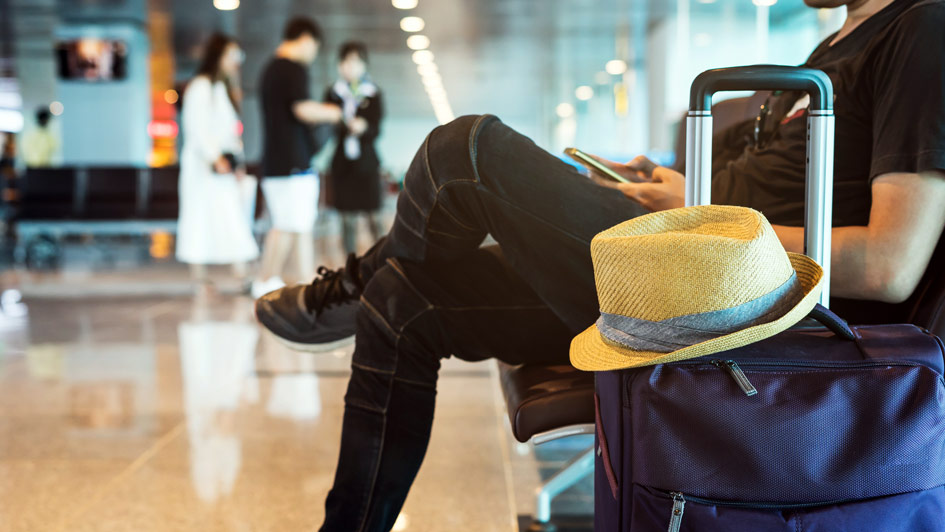
Whether it’s a much-needed vacation or an extended trip for work, leaving home means making preparations for your heating and cooling system. You won’t be using it as long as you’re not home, so you can make adjustments as necessary to minimize your energy use. Just the same, you shouldn't just turn it off for the entire time you're gone.
In general, it’s ideal to leave your HVAC system going and just make adjustments depending on whether it's winter or summer. That way you can minimize energy costs without worrying about returning to an uncomfortable home. We’ll walk you through why you should avoid turning your HVAC system off as well as the ideal thermostat settings for various times of year.
This Is Why You Don't Leave Your Thermostat Alone
While you might be wanting to leave your HVAC system off before a trip, this will sometimes end up leading to annoying problems by the time you return. This is especially true when the weather will be severely hot or cold while you’re away from home.
For example, switching the HVAC system off during the summer could lead to very high humidity. Not only will your home feel like a swamp when you return, but it could have also encouraged mold/mildew growth or pest infestations.
And during the winter, letting your house get cold can lead to pipes freezing up or even bursting. It’s never fun to get home from a vacation only to discover considerable water damage near a broken pipe.
Best Thermostat Settings While at Work
You can adjust the temperature even as you come and go to work. Because you’re out of the house for around 8 hours or so, it doesn’t make sense to keep an empty home heated or cooled as if you were there. As a general rule, it’s recommended to adjust the thermostat by 5 degrees or more. Meaning that if you prefer a comfortable 72 degrees, think about adjusting it to 76-77 while you’re at work.
But you can save even more if you try further adjustments to the temperature. As stated by the Department of Energy, you could save around 10% on your HVAC costs by raising the temperature by about 7-10 degrees.
Ideal Thermostat Settings While on Vacation in Summer
If you're on a lengthier trip in the heart of summer, you can make more significant adjustments. This ensures you don’t waste energy while still protecting your home from the issues that come with leaving it without air conditioning. Around 5 degrees is recommended for short trips while around 10 degrees is worthwhile if you’ll be away from home for 2 weeks or more. If you like keeping the house at 72 in the summer, 78-82 should offer great results.
Recommended Thermostat Settings While on Vacation in Winter
To try and find the best thermostat setting for a winter trip, simply lower it by the same amount you would adjust it in summer. 68 is a common winter thermostat setting, so turning it down to 63-58 will protect your plumbing while restricting how often your furnace operates.
A Smart Thermostat Can Help: Perks of a Smart Thermostat
A great way to optimize your home’s HVAC system while out of the house is with a smart thermostat. This advanced type of programmable thermostat utilizes intelligent software to understand your usual comfort habits. It applies these preferences and makes automatic changes to the schedule for better energy efficiency. And with Wi-Fi compatibility, you can remotely access your HVAC system from a smart device like a phone or tablet.
Smart thermostats are packed with features to help you save on your energy bill. For instance, certain models can track electricity prices to increase heating or cooling when prices are lowest. They can be used with high-efficiency, variable-speed equipment to fine-tune how long your HVAC system should run. It’s the perfect tool to enhance how you control your comfort system. If you’re planning on investing in a smart thermostat, there are different ways you can lower your costs, essentially getting a smart thermostat for free. The next time you leave for vacation, you can receive true peace of mind that your HVAC system won’t stir up any trouble while you’re away from home.
